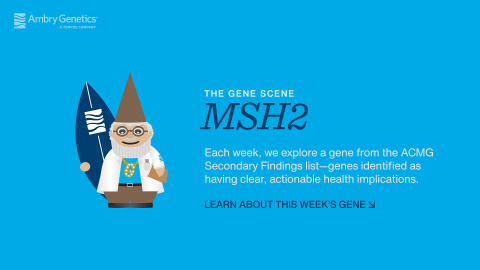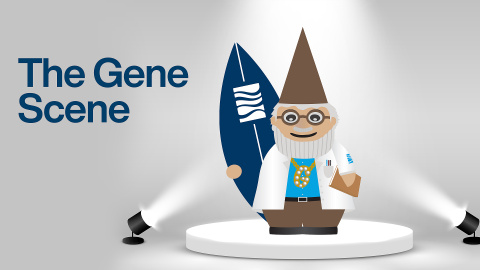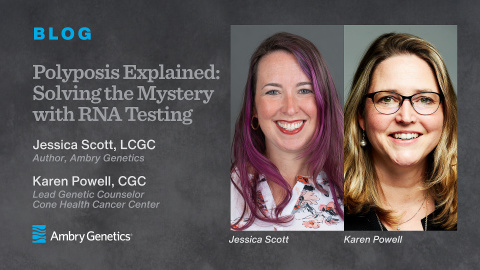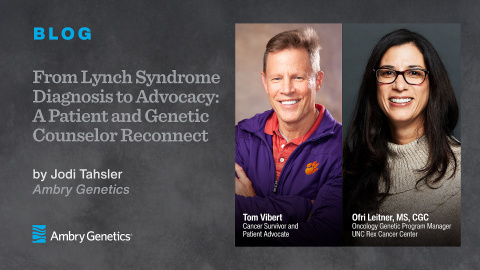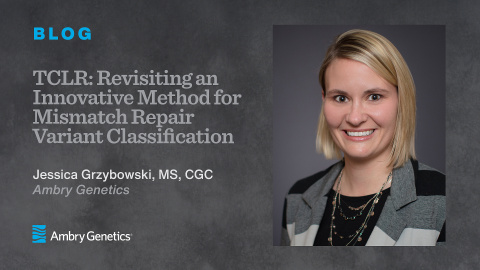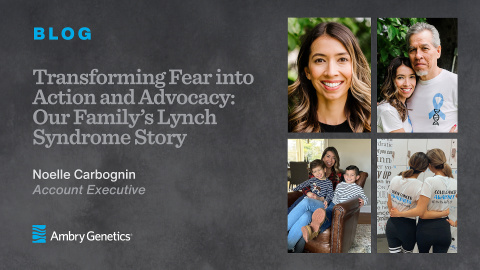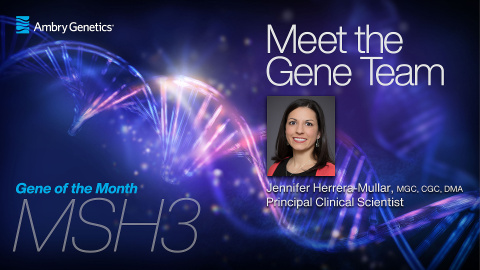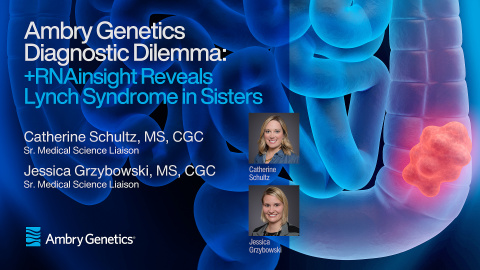- By Sarah Campian, MS, CGC
- Posted October 21, 2025
The Gene Scene: MSH2
Welcome to the Gene Scene! Each week, we will explore a gene from the ACMG Secondary Findings list—genes identified by the American College of Medical Genetics and Genomics as having clear, actionable health implications. These genes are included because they’re linked to serious but preventable or manageable conditions when identified…
- By Rebecca Carr, MS, CGC
- Posted August 12, 2025
The Gene Scene: PMS2
Welcome to the Gene Scene! Each week, we will explore a gene from the ACMG Secondary Findings list—genes identified by the American College of Medical Genetics and Genomics as having clear, actionable health implications. These genes are included because they’re linked to serious but preventable or manageable conditions when identified…
- By Jessica Scott, MGC, CGC
- Posted October 16, 2024
Polyposis Explained: Solving the Mystery with RNA Testing
As a genetic counselor at Cone Cancer Center for the last twelve years, Karen Powell, CGC, enjoys helping patients understand their cancer risks. Hereditary cancer testing may provide important and possibly life-saving information for not only the patient but their family members as well. Many patients present with a family history of cancer,…
- By Jodi Tahsler
- Posted August 19, 2024
From Lynch Syndrome Diagnosis to Advocacy: A Patient and Genetic Counselor Reconnect
In honor of Patient Advocacy Day, Ambry connected with a genetic counselor and one of her former patients to find out how genetic testing made a difference for his healthcare and inspired him to advocate for other patients. Ofri Leitner, MS, LCGC, is a genetic counselor who currently manages the Oncology Genetics Program at UNC Rex Cancer Center…
- By Jessica Grzybowski, MS, CGC
- Posted July 3, 2024
TCLR: Revisiting an Innovative Method for Mismatch Repair Variant Classification
In the rapidly evolving landscape of hereditary cancer genetics, precision in classifying genetic variants is crucial. Ambry Genetics recognizes this need and consistently innovates by applying rigorous methods and multidisciplinary expertise to better interpret variants, including for specific gene and variant types that can be more challenging.…
- By Noelle Carbognin
- Posted March 22, 2024
Transforming Fear into Action and Advocacy: Our Family’s Lynch Syndrome Story
It has been almost 3 years since my father was offered genetic testing after developing three different types of cancers. He also had an alarming family history – multiple relatives with cancer, going back generations. After he received a positive result for Lynch Syndrome, putting him at an increased risk for colon cancer and other types of…
- By Jodi Tahsler
- Posted April 11, 2023
Meet the Gene Team: Jeni Herrera-Mullar, MGC, CGC, DMA, presents the Gene of the Month, MSH3
Meet the Gene Team The Gene Team is an essential part of Ambry Genetics. This passionate team of experts is inspired by advancing the science of gene characterization and being able to help patients. For our second installment, we would like to introduce Jeni Herrera-Mullar, MGC, CGC, DMA, Principal Clinical Scientist at Ambry Genetics. Jeni…
- By Catherine Schultz, MS, CGC
- Posted March 23, 2023
Ambry Genetics Diagnostic Dilemma: +RNAinsight® Reveals Lynch Syndrome in Sisters
In recognition of Colon Cancer Awareness Month, Ambry would like to share the story of Jane and Julie Smith (not their real names) – sisters and cancer survivors. Jane was diagnosed with colon cancer in 2004 at the age of 36. While she was concerned about her diagnosis and family history of ovarian cancer, genetic testing was not widely available…
- By Noelle Carbognin
- Posted February 17, 2022
Thanks to Genetic Testing, I Now Know My Cancer Risk
“It’s one thing to be scared to hear something, it’s another to die from not hearing something at all.”—Rick, Colon & Kidney Cancer Survivor (American Cancer Society) When I was twelve years old, my cousin was diagnosed with Stage 4 colon cancer. She was only 24. My mother knew my grandfather on…
- By Monalyn Umali Salvador, MS, CGC
- Posted April 4, 2019
Paired Tumor/Germline Testing for Lynch Syndrome
When I think back to the initial discussions about what is now TumorNext-Lynch, I remember a vision to offer a comprehensive and convenient test that would be able to confirm a diagnosis or indicate a significantly reduced likelihood of Lynch syndrome. It was clear that the best approach to achieve this was to develop a paired tumor/germline…
